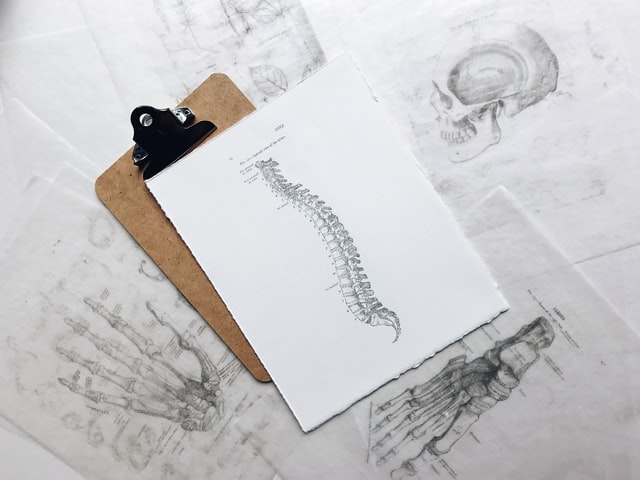
Spinal cord injuries are some of the most serious a person can sustain, and the extent to which they can affect a person’s life varies greatly. Spinal injury compensation can be available if the victim can prove negligence was a factor in the accident. This can range from a motor vehicle collision to a workplace injury.
There’s no such thing as “brain injury law” or a “spinal cord injury lawyer”. What determines the law that applies to the claim is the circumstances of the accident, not the type of injury suffered or the severity of the injury.
If someone suffers a whiplash injury in a car accident, then the same law applies to the claim as if they were made quadriplegic. If the negligence of an employer causes a back injury, the same Workers Compensation laws apply as if the same person suffered a finger amputation.
But what makes spinal cord injury cases different are the intensity and the cost of litigation. Spinal cord injury cases are high stake cases. The amount of compensation in issue can be extraordinary, the injuries are life-changing, and the cost of future treatment and rehabilitation can be massive.
What is a Spinal Cord Injury?
The spinal cord is a complex extension of the central nervous system, acting as a communication system between the brain and the body. The spinal cord runs from the brain to the base of the spine. A spinal cord injury may also be considered a back injury. The impacts of spinal injuries can vary depending on which part of the spine is injured.

Causes of Paralysis and Spinal Cord Damage
About two thirds of all cases of paralysis are caused by medical conditions such as stroke, multiple sclerosis and cerebral palsy. Most conditions do not give rise to a legal liability, with the exception of undiagnosed strokes, which can be the result of medical malpractice, and cerebral palsy caused by birth defects.
The remaining one third of paralysis is caused by spinal cord injuries and traumatic brain injuries. Just over half of spinal cord injuries are caused by car accidents and accidents at work, and the remainder are attributed to falls, sporting accidents, recreational accidents and violet crime.
Males are almost twice as likely to suffer a spinal cord injury than females, mainly because males usually work in high-risk industries, like high rise construction, police officers, firefighters and service in the military.
Spinal cord injuries in children are rare, accounting for less than 1% overall, but nonetheless usually occur as a result of birth injuries and shaken baby syndrome.
Common Spinal Cord Injuries That May Warrant a Claim
Paraplegia – damage to the thoracic or lumbar region where the use of arms and hands is maintained, but control over lower limbs is affected.
Quadriplegia (also known as tetraplegia) – damage to the cervical region (i.e., a broken neck) can result in a person losing control of their arms, hands and their legs.
Generally speaking, a damaged spinal cord can mean a loss of:
- Muscle control
- Sensation (pressure, touch)
- Bladder and bowel control
- In extreme cases, the ability to breathe unaided
As such, moving quickly to document your spinal injury with a medical professional and consulting a lawyer is important to receive compensation for your injury.
If you can prove that someone else’s negligence caused or contributed to your injury, you may have a case and could receive compensation for your injury.

How much compensation will I get for a spinal injury?
The amount of compensation received for a spinal cord injury a person will receive depends on the case. Generally speaking, the amount of compensation you will receive comes down to comparing your life before the injury to what your life is like as a result of the injury.
Just a few factors that need to be considered include:
- The extent or severity of the injury (i.e., how significant the impacts are to an individual)
- The age of the patient (younger people tend to receive higher compensation amounts as the injury will affect their life for longer)
- Occupation (if the injury severely impacts a person’s ability to resume their former occupation, they may receive greater compensation)
- Previous level of health (if prior to the injury the person was active and healthy and now cannot resume these former practices which may predispose them to health conditions and mood disorders they may not have suffered prior to the injury)
- Prior lifestyle (if the injury now prevents the injured from engaging in activities they once enjoyed regularly)
Gold Coast Spinal Cord Injury Lawyers
To summarise, a “spinal cord injury lawyer” is really no different to lawyers who represent injured people in car accidents, work accidents and in public places, except for one thing, their skill, perseverance and dedication to put together the best case possible for an insurance company. At GC Law, we have experience in handling a range of spinal cord injury cases and can help determine the best outcomes for your claim.
If you have suffered a spinal or back injury and believe you may be able to make a claim, it is best to get in touch with a personal injury lawyers as soon as possible.
For more information or to learn about how to make a spinal injury claim, contact GC Law for a Free Case Review or call us directly on 1300 302 318.